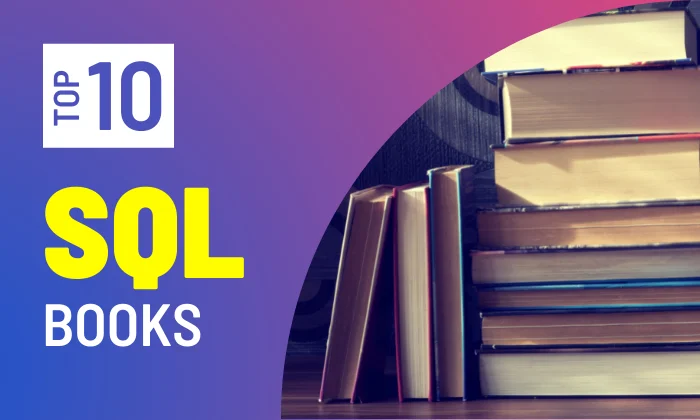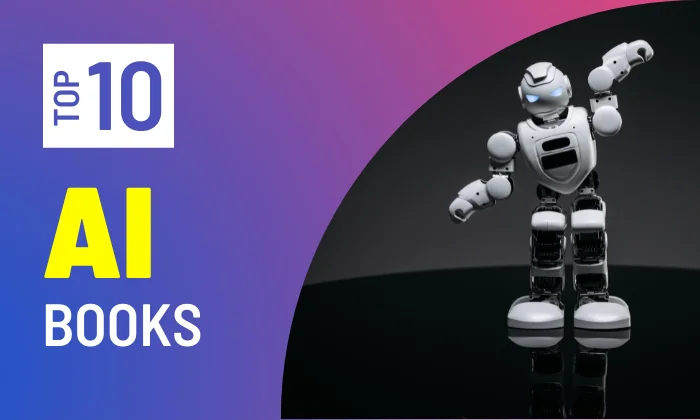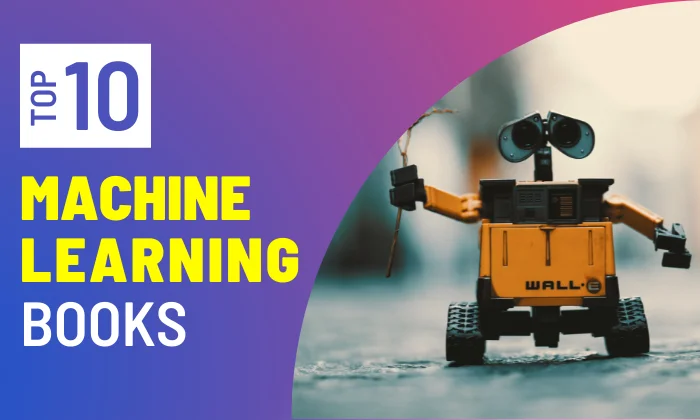These are the top 10 SQL books that will help you learn and implement SQL.

1. SQL Guide (Quick Study: SQL)
by Inc. BarCharts
This guide is for SQL developers and learners. In this book, concepts of the basic understanding of databases are discussed. IBM employed SQL as Structured English Query Language (SEQUEL) in the early 1970s, which was the standard database language at the time. In 1986, the American National Standards Institute (ANSI) published the first standard and quality version of this language, which was followed by several other versions. This language was designed in a way that helped the database vendors to understand the interoperability. The most highlighted update in this language was the conformance levels. This guide also includes the SQL-99 which is the advanced form of this language. It consists of 2 levels with 9 sets of additional items and features. This SQL version also changes the entry-level conformance to Core SQL-99.
2. SQL QuickStart Guide: The Simplified Beginner’s Guide to Managing, Analyzing, and Manipulating Data with SQL
by Walter Shields
SQL is the core computer language that serves as the foundation for modern data administration and analysis. This book is great for those hoping to improve their job prospects and professions, developers looking to boost their programming talents, or anyone who wants to take advantage of our unavoidably data-driven future, even with no programming knowledge. In this guide, the developer will learn the fundamental structure of databases—what they are, how they work, and how to navigate them successfully, the most critical SQL queries, as well as when, and how to apply them for maximum effect. Professional SQL applications and how to “sell” your new SQL talents to your boss, as well as other career-enhancing aspects.
3. SQL in 10 Minutes a Day, Sams Teach Yourself 5th Edition
by Ben Forta
A thorough working knowledge of SQL is essential when interacting with databases, whether you’re an application developer, database administrator, web application designer, mobile app developer, or Microsoft Office user. Sams Teach Yourself SQL in 10 Minutes provides the easy, practical solutions you need to get the job done. The author teaches you only the elements of SQL you need to know, beginning with easy data retrieval and swiftly progressing to more advanced subjects covered including the use of joins, sub-queries, stored procedures, cursors, and many more. You’ll study slowly, systematically, and simply–in short, quick courses that last no more than 10 minutes.
4. SQL All-in-One For Dummies 3rd Edition
by Allen G. Taylor
This 3rd Edition is your one-stop shop for all things SQL and SQL-based database systems. Database administrators, application programmers, and those who manage them will all find clear, straightforward explanations of the SQL language and its many powerful uses. With an ever amount of data available, more and more businesses, both large and small, are shifting away from spreadsheets and toward SQL databases such as Access, Microsoft SQL Server, Oracle databases, MySQL, and PostgreSQL. This informational resource covers the design, development, and upkeep of various databases. SQL All-In-One For Dummies is a recent update to the popular book for readers looking for in-depth knowledge of SQL databases and queries.
5. Learning SQL: Generate, Manipulate, and Retrieve Data 3rd Edition
by Alan Beaulieu
This book helps you to collect and manage data that enter your firm in a short period and SQL is the best tool for this. In this introductory guide’s most current edition, the author supports developers in learning the principles of SQL to construct database applications, conduct administrative operations, and generate reports. There are several new chapters added in this edition such as Big data handling, analytic functions, and many more. Using numerous pictures and annotated examples, each chapter delivers a self-contained lecture on a major SQL subject or method. Exercises allow you to put what you’ve learned into practice. If you want to interface with data, you’ll need to know SQL. With Learning SQL, you’ll quickly learn how to put the language’s strength and flexibility to work for you.
6. SQL: Learn SQL (using MySQL) in One Day and Learn It Well. SQL for Beginners with Hands-on Project
by LCF Publishing, Jamie Chan
With this book, you can learn SQL in a single day and begin coding right away. This guide simplifies complex concepts by breaking them down into basic steps and using clear and carefully chosen examples to ensure that you can understand SQL quickly. The book’s flow has been meticulously structured to guarantee that you can simply follow along. Furthermore, at the end of the book, you will be taken through a complete project that demands the implementation of all previously taught ideas. Working through the project will not only offer you a sense of accomplishment but will also help you recall the information and grasp the language.
7. SQL Pocket Guide: A Guide to SQL Usage Third Edition
by Jonathan Gennick
The SQL Pocket Guide provides an overview of how to use SQL syntax for querying, managing operations, and changing data in these database systems. It also demonstrates how SQL functions, regular expression syntax, and type conversion functions and formats are used by the systems. All of the example SQL statements in this book run against a set of tables that contain data that you may download instantly. The third edition covers significant database updates, including Oracle’s support for the recursive WITH syntax and the addition of the PIVOT and UNPIVOT operators, as well as a slew of other subjects.
8. Learn SQL Quickly: A Beginner’s Guide to Learning SQL, Even If You’re New to Databases
by Code Quickly
The internet may be awash in confusing tutorials, and incomplete playbooks that make learning to code appear more difficult than it is, but rest assured, this is not the case. Even if you’ve never coded before, you can learn to code in the time it takes to read a book and avoid all of the useless schooling. This article will teach you everything you need to know about SQL code by using simple, concise, and to-the-point examples. How to regulate the transfer of your data in the most efficient manner, saving you both time and potential headaches. Why MySQL is a better choice for you than the alternatives, and how to get started right now. These all techniques are very well explained in this guide which will help the programmer get going.
9. Practical SQL: A Beginner’s Guide to Storytelling with Data
by Anthony DeBarros
The book attempts to use SQL to find the message in your data, as well as its fundamental tools from the open-source database PostgreSQL and the pgAdmin interface. You’ll master the principles of databases and the SQL language first, then put what you’ve learned into practice by analyzing data from the US Census and other federal and state government agencies. This book will teach even individuals who have never programmed before all of the tools needed to build strong databases and retrieve information quickly and efficiently, with exercises and real-world examples in each chapter. Learning this programming language does not have to be tedious or difficult. Practical SQL teaches you the skills you need to design and maintain your databases using straightforward examples and an easy-to-follow approach.
10. SQL for Data Scientists: A Beginner’s Guide for Building Datasets for Analysis 1st Edition
by Renee M. P. Teate
The most commonly used Structured Query Language (SQL) and database-building skills among data scientists are covered in this book. Ambitious data scientists will learn how to create datasets for recreational, analytical, and machine-learning objectives. You can also learn how to approach query design and SQL code development to extract data insights while minimizing hazards. You may have performed analyses with spreadsheets as data sources, but you have never retrieved and engineered datasets from a relational database using SQL, a coding language intended for managing databases and extracting data. This data scientist’s guide is unique from past educational guides on the subject. It does not cover SQL in depth. Instead, you’ll study a subset of SQL abilities commonly used by data analysts and data scientists.
Stay tuned to AiHints for more insightful tutorials on web development, programming, and artificial intelligence. Happy coding!


